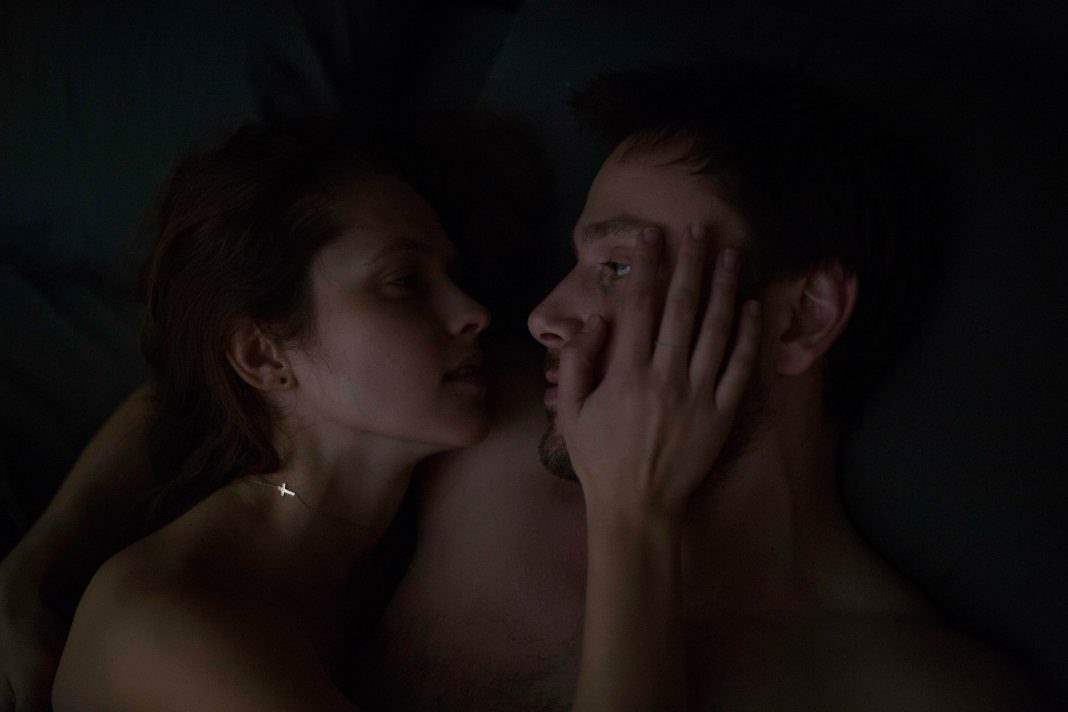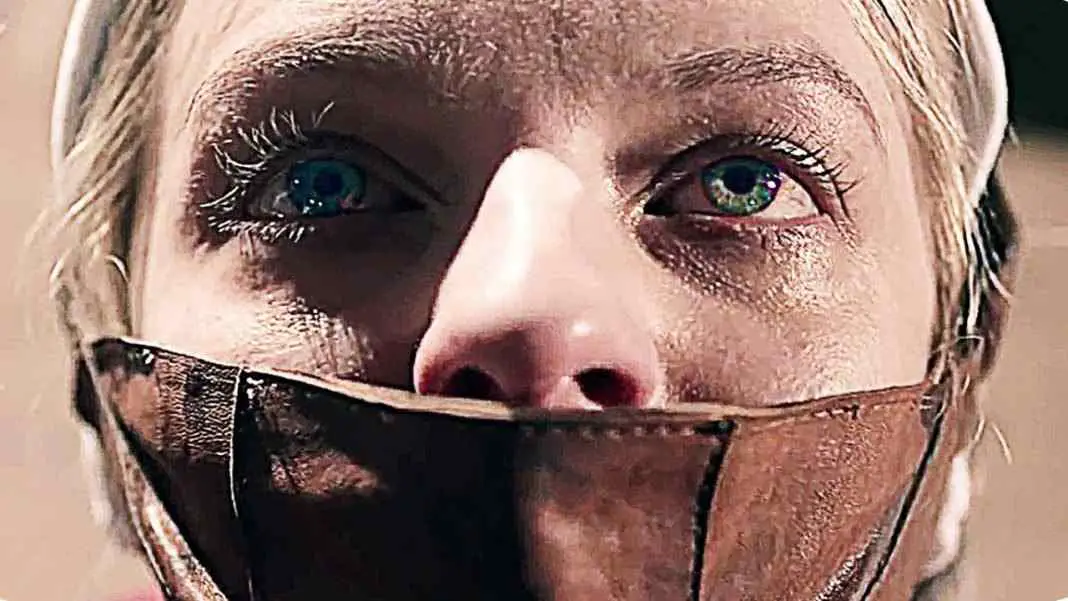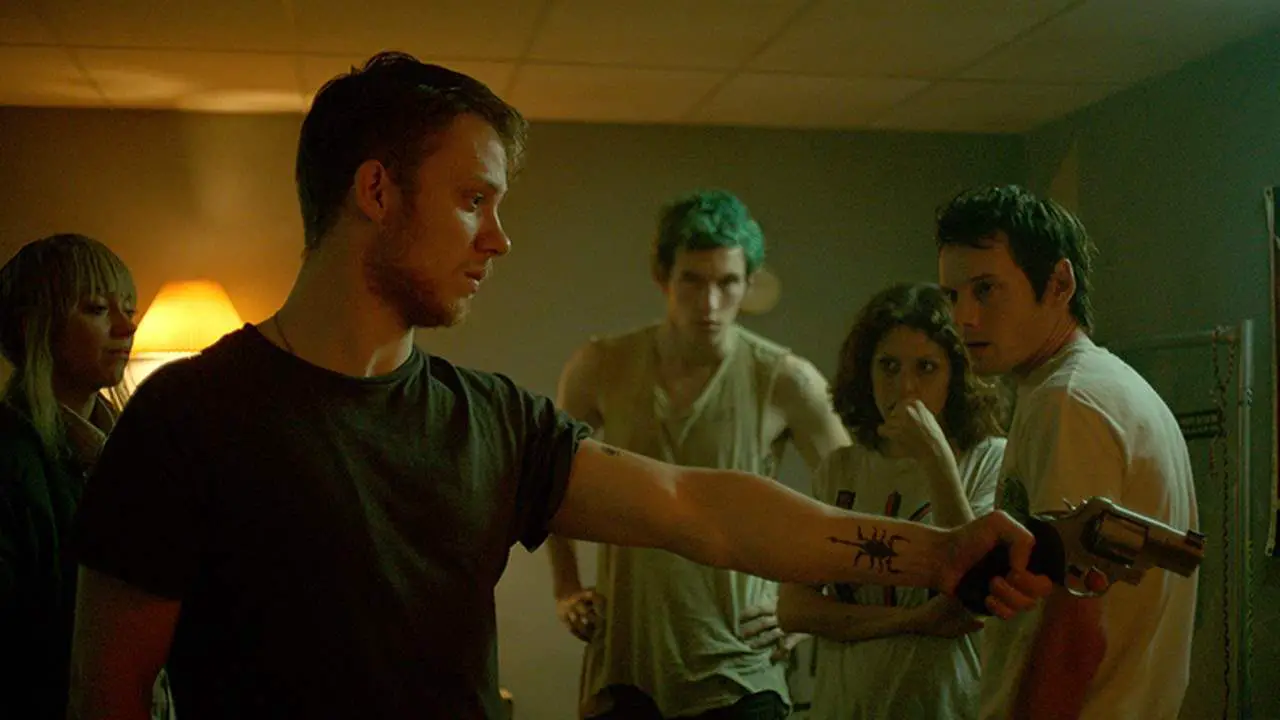Horror is evolving as a genre. Although your local multiplex is still loaded with the usual contenders, look a bit closer and you’ll find the latest drama, thriller, or crime offering is closer to horror than you might expect. In this bi-weekly series, Joey Keogh presents a film not generally classified as horror and argues why it exhibits the qualities of a great flight flick, and therefore deserves the attention of fans as an example of Not Quite Horror. This week, it’s Berlin Syndrome.
The girl-trapped-in-an-enclosed-space-by-a-crazed-man scenario has been done to death at this stage. Most recently, Lenny Abrahamson received Oscar acclaim for Room. There was also Pet, if you were (un)lucky enough to catch that last year/earlier this year (depending on geographical location). And now we have Berlin Syndrome, another adaptation of a hit novel (like Room) with a truly bizarre relationship at its heart (like Pet).
Teresa Palmer, quickly making a name for herself as a character actor to watch after take-notice performances in the likes of Warm Bodies and the 2015 Point Break remake, is an Aussie backpacker lolling around Berlin when she meets a seemingly lovely German man named Andi (Max Riemelt). After some dreamy daytime flirtation, the two retire to his modest apartment. The following morning, she finds him gone and the place locked up like Fort Knox.

Director Cate Shortland (Somersault) also utilises an impressive amount of gore, particularly when Claire fights back against her captor. She keeps the tone brooding, tense and unsettling throughout–even during the initial meet-cute we sense, judging by how closely the camera sticks to Andi, that there’s something a bit off about him. Later, as he teaches a gym class and pervs on a student before cruelly rebuffing her advances, we see his dark side.
Crucially, Berlin Syndrome doesn’t resort to torture cinema-style nastiness to make its point. The bad feeling comes primarily from the escalating tension between the two protagonists. We never see Andi force himself on her, for example. He ties Claire to the bed but later relents when she points out she has nowhere to go. When she attempts to find a connection with him, as an audience we might recoil but the machinations of her thinking are still understandable.
 The movie’s premise wouldn’t work as well were there two less capable performers at its core. Riemelt excels at being quietly creepy, presenting himself as a normal dude one moment and a complete psycho the next. He’s utterly believable as both, chiefly because we never really see him flying off the handle. In fact, it’s Andi’s consistent calmness that makes him so frightening, whether he’s dealing with his father’s death or slamming Claire’s fingers in a door and then nonchalantly popping them back into place.
The movie’s premise wouldn’t work as well were there two less capable performers at its core. Riemelt excels at being quietly creepy, presenting himself as a normal dude one moment and a complete psycho the next. He’s utterly believable as both, chiefly because we never really see him flying off the handle. In fact, it’s Andi’s consistent calmness that makes him so frightening, whether he’s dealing with his father’s death or slamming Claire’s fingers in a door and then nonchalantly popping them back into place.
As the tortured, confused, lonely Claire, Palmer is terrific, her face a mask of innocence and forced maturity that belies how terrified she must be to be out on her own in the world. The young actor turns scenes that could’ve been cringeworthy and exploitative, such as when Andi forces her to model lingerie for him, into piercing, thoughtful glimpses into her character’s psyche (though being directed by a woman surely helped, too).
Berlin Syndrome is an oddity. An original, nicely twisted spin on a highly unoriginal concept, not one moment plays out how one expects it to. Anchored by a couple of equally strong central performances, it manages to be creepy, unsettling and strangely grounded. There’s a sense, more than anything else, that this could be any of us. It’s to Shortland’s immense credit that what could’ve been taken as ludicrous instead feels everyday, almost normal.








